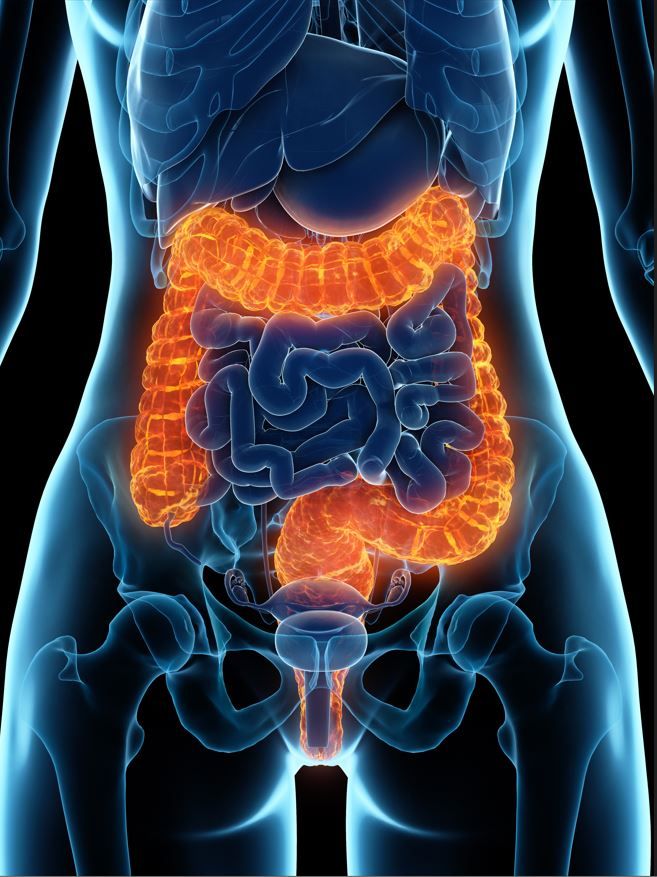- Clinical Technology
- Adult Immunization
- Hepatology
- Pediatric Immunization
- Screening
- Psychiatry
- Allergy
- Women's Health
- Cardiology
- Pediatrics
- Dermatology
- Endocrinology
- Pain Management
- Gastroenterology
- Infectious Disease
- Obesity Medicine
- Rheumatology
- Nephrology
- Neurology
- Pulmonology
Women with IBD at Risk for Reduced Fertility Even During Clinical Disease Remission, Study Suggests
Histologic inflammation was associated with reduced fertility whether IBD disease was active or quiescent in a nationwide study of Swedish women aged 15 to 44 years.
Fertility rates among women with inflammatory bowel disease (IBD) during periods of histologic inflammation were decreased by 10% compared to periods of histologic remission, according to findings from a nationwide study in Sweden. Further, the association between active inflammation and reduced fertility remained when the investigators restricted analyses to women whose IBD was clinically quiescent.
©SciePro/stock.adobe.com

The team of researchers from Sweden and the US also reported lower fertility rates during clinically active IBD than when IBD was in clinical remission. Fertility rates were similarly reduced in both ulcerative colitis (UC) and Crohn disease (CD) during histologic inflammation and clinical IBD activity.
Women of reproductive age are often diagnosed with IBD, raising understandable concerns around fertility, wrote the authors. Observed reduction in fertility in the population is “believed to be primarily confined to women with clinically active IBD” where reproductive organs may be affected by inflammation. Current research, however, suggests near normal fertility in women with UC and quiescent CD, they added.
“Despite the increasing appreciation of histological activity in IBD, its association with female fertility has not been clarified, including whether histological activity in the absence of clinical disease activity impairs fertility,” Karl Mårild, MD, PhD, associate professor of pediatrics in the Institute of Clinical Sciences at Sahlgrenska Academy at the University of Gothenburg in Sweden, and colleagues wrote in the journal Gastroenterology.
To help advance understanding in the area, Mårild and team tapped data from the Swedish National Patient Register and the Swedish Prescribed Drug Register to identify women diagnosed with IBD between 1969 and 2017 and then compared fertility outcomes for individuals with and without histologic remission.
“Despite the increasing appreciation of histological activity in IBD, its association with female fertility has not been clarified, including whether histological activity in the absence of clinical disease activity impairs fertility.”
The study included a pair of non-mutually exclusive groups of women aged 15 to 44 years with IBD. The first group included 21 046 women diagnosed in 1990-2016 with longitudinal data on colorectal biopsies. The second comprised 24 995 women with IBD diagnosed in 2006-2020 with data on clinical IBD activity.
Researchers analyzed 2 measures of IBD activity, the primary exposure being periods of histologic inflammation and the secondary exposure, clinically active IBD. The study’s primary outcomes were fertility rate (live births per 100 person-years [PY] of follow-up) and fertility rate ratio (FRR; an estimate of <1.00 indicates reduced fertility).
FINDINGS
Histologic inflammation. The investigators identified 11 626 women with IBD, contributing to 17 348 follow-up periods with histologic inflammation, and 6180 IBD women contributing to 7933 follow-up periods with histologic remission.
Mårild et al reported that histologic inflammation was more common in women with recently diagnosed IBD (mean time since diagnosis, 3.4 years) than in those in histologic remission (mean time since diagnosis, 4.8 years). During periods of histologic inflammation, the fertility rate was 6.35 (95% CI 5.98 - 6.73) per 100 PY of follow-up compared to 7.09 (95% CI, 6.48 - 7.70) per 100 PY without histologic inflammation.
They calculated that these rates corresponded decreased fertility of 10% among women with histologic inflammation (FRR, 0.90; 95% CI, 0.81 - 0.99). The adjusted FRR (aFFR) was nearly identical (0.90; 95% CI, 0.81 - 1.00), after researchers controlled for age, calendar year, education level, country of birth, marital status, and comorbidity. They found similar aFRR values for UC (aFRR 0.89; 95%CI 0.78 - 1.02) and CD (0.86; 95%CI 0.72 - 1.04)
Clinically active IBD. The team identified 15 600 women with 80 821 periods of clinically active IBD and 20 272 women with 48 735 periods of clinically quiescent IBD. During clinical IBD activity, the fertility rate was 6.22 (95% CI, 5.95-6.49) per 100 PY compared to 7.97 (95% CI, 7.79 - 8.15) per 100 PY with clinically quiescent IBD. Clinical IBD activity was associated with an aFRR of 0.76 (95% CI, 0.72 - 0.79) or one fewer child per 6 women over 10 years of clinical activity. Additionally, clinical IBD activity was associated with reduced fertility compared to matched general population comparators (aFRR, 0.84; 95% CI, 0.81 - 0.88).
Histologic inflammation was associated with reduced fertility in both clinically quiescent IBD (aFRR, 0.85; 95% CI, 0.73 - 0.98) and clinically active IBD (aFRR, 0.98; 95% CI, 0.76 - 1.26).
“Importantly, histological inflammation in IBD was associated with reduced fertility in women with clinically quiescent disease,” wrote the authors in their conclusion. Even though their findings suggest the overall reduction in fertility to be modest, the impact on an individual may be substantial and include consequences beyond reproductive health, they added.
“Involuntary childlessness causes high and increasing costs, highlighting the need to focus on preventable causes of reduced fertility. Our data support recommendations for objectively defined IBD remission, which may optimize the chances of conceiving a child.”
